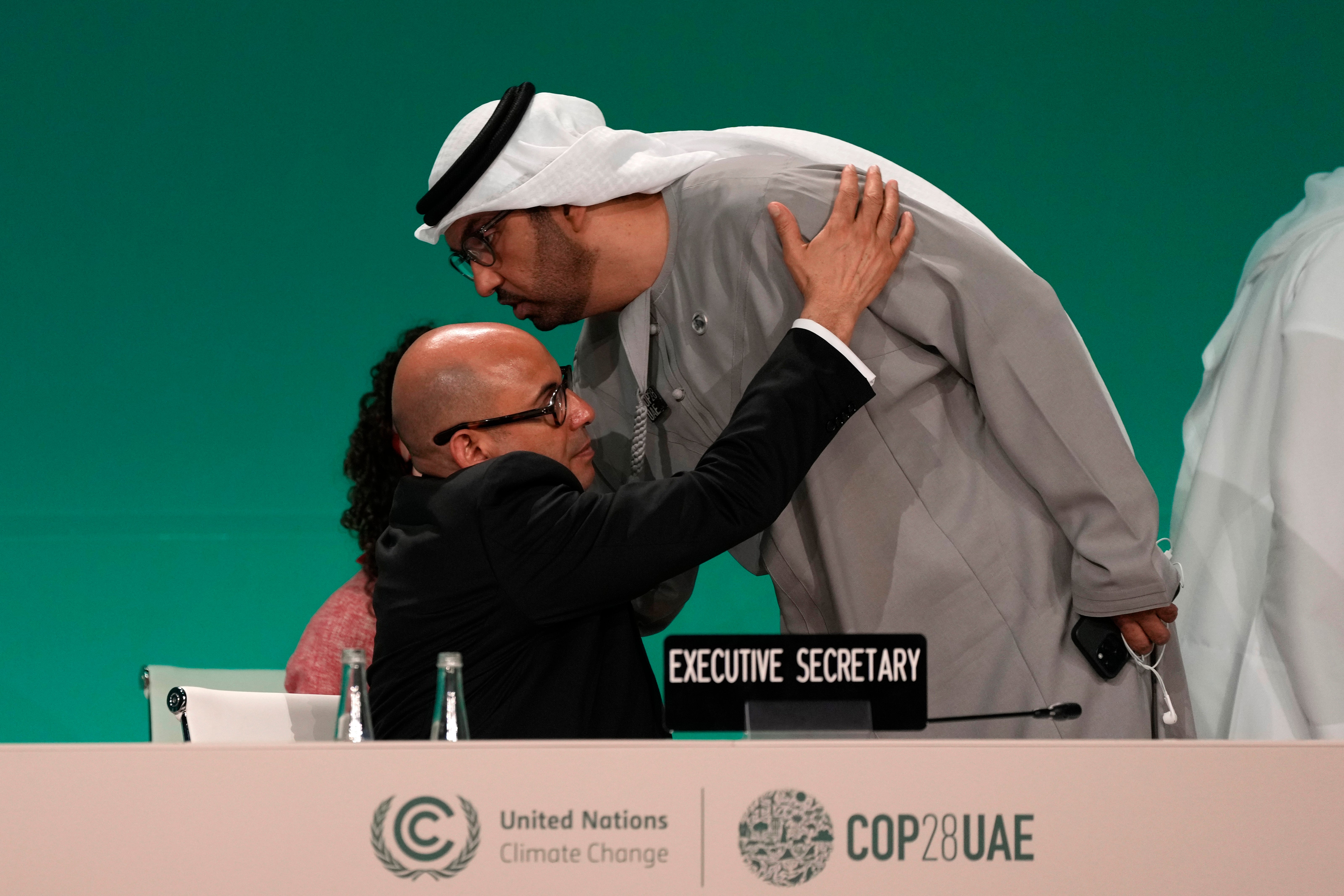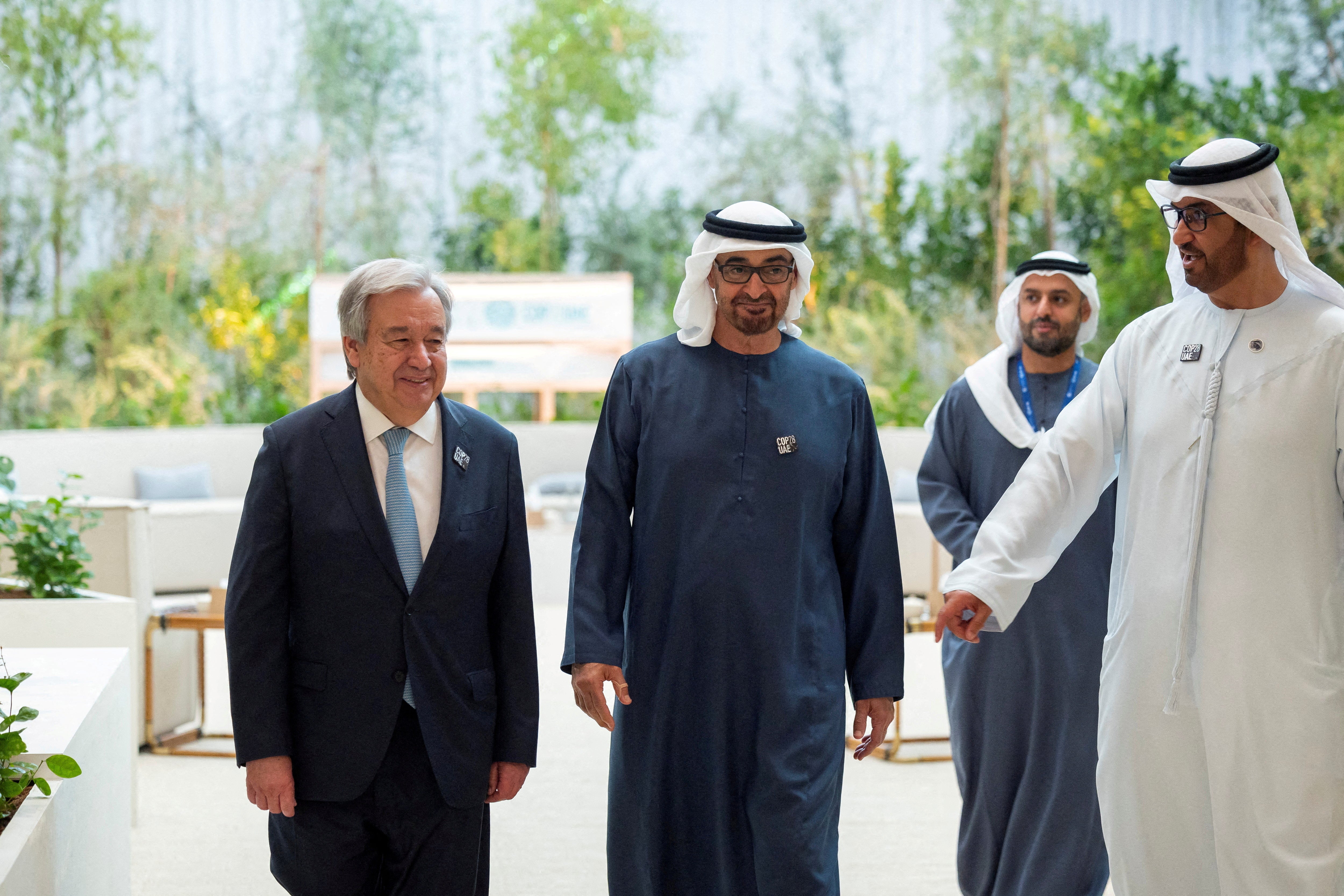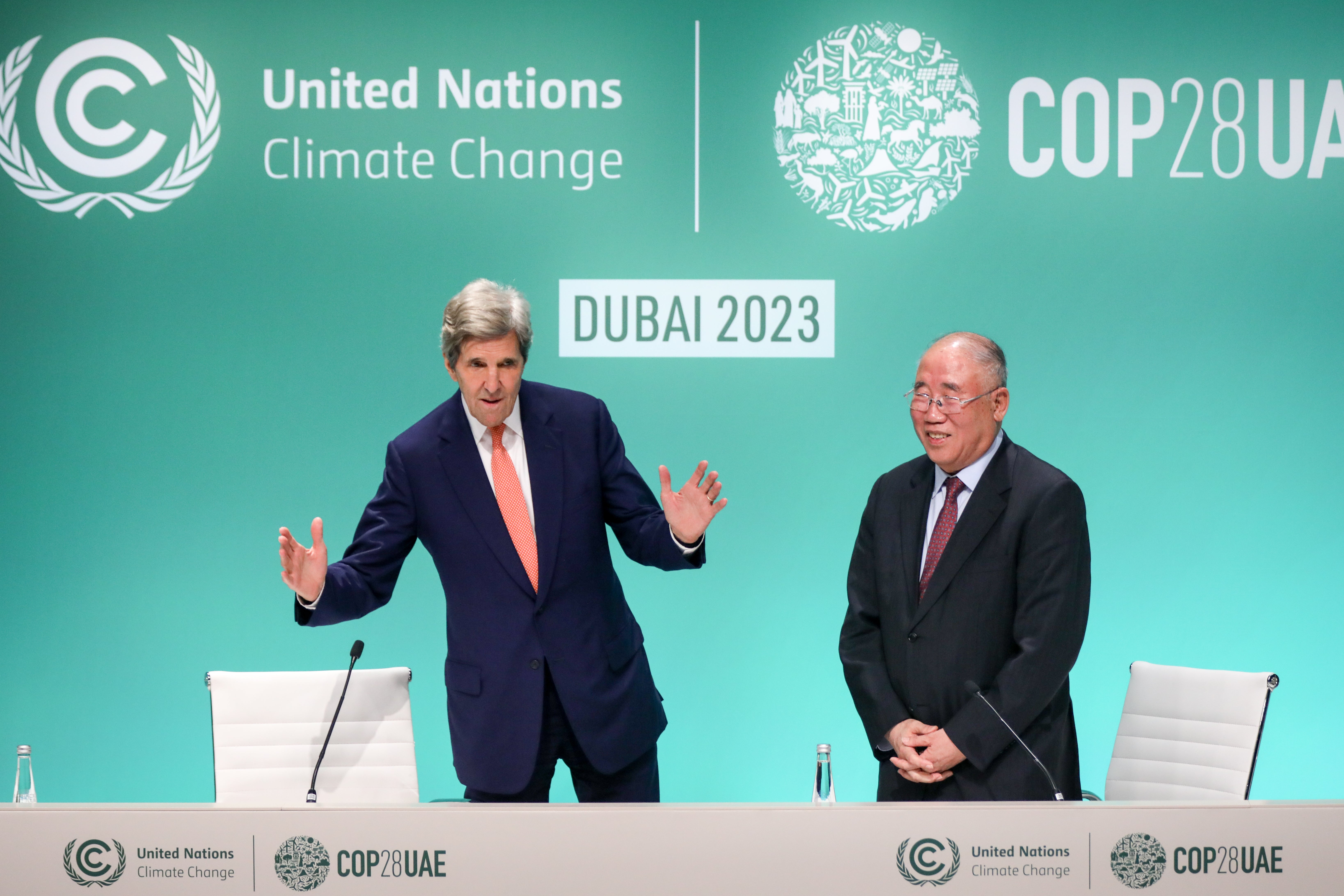Sultan Al Jaber, the oil boss and Cop28 host with a PhD from Coventry
The Cop28 president studied for his PhD in business and economics at Coventry University - where he acquired the nickname Dr Sultan
Your support helps us to tell the story
From reproductive rights to climate change to Big Tech, The Independent is on the ground when the story is developing. Whether it's investigating the financials of Elon Musk's pro-Trump PAC or producing our latest documentary, 'The A Word', which shines a light on the American women fighting for reproductive rights, we know how important it is to parse out the facts from the messaging.
At such a critical moment in US history, we need reporters on the ground. Your donation allows us to keep sending journalists to speak to both sides of the story.
The Independent is trusted by Americans across the entire political spectrum. And unlike many other quality news outlets, we choose not to lock Americans out of our reporting and analysis with paywalls. We believe quality journalism should be available to everyone, paid for by those who can afford it.
Your support makes all the difference.When Sultan Al Jaber accepted an offer to study his PhD in Coventry - a city forever linked in the English language with being ostracised - very few would have imagined him later heading global talks in the fight against climate change.
His selection as president of Cop28 was met with suspicion by many as he dovetailed the role with his other job - that of running Abu Dhabi National Oil Company (ADNOC), the state-owned firm of this year’s climate summit host, the United Arab Emirates (UAE).
Climate activist Greta Thunberg described the appointment as “completely ridiculous”, while other campaigners were sceptical that the boss of a company set to be the largest oil producer in the world by 2050, was the right pick.
And he got off to a terrible start at Cop28 when his previous comments that there was “no science” behind calls to phase-out fossil fuels as a way of limiting global heating to 1.5C were unearthed, sending ripples through the delegates.
They threatened to turn summit into a farce, but he insisted that he and the UAE “very much respected science”. And at the end of Cop28, he triumphantly declared the deal to transition away from oil, coal and gas as ‘historic’, side-stepping criticism that the agreement contained a ‘litany of loopholes’.

Mr Jaber was born in 1973 in Umm al Quwain, one of the lesser known emirates, and is not a member of any of the royal families that rule the country.
Despite that, he has stood out in the country for the number of prominent positions he has held over the years.
He was educated in the US and the UK, picking up a BSc in chemical engineering from the University of California and his PhD in business and economics from Coventry University - where he acquired the nickname Dr Sultan.
After his education he was put in charge of Masdar, the UAE’s renewable energy vehicle in 2006, and set off on a global fact-finding mission to assess obstacles and opportunities.
As part of the tour, he met Olafur Ragnar Grimsson, then president of Iceland, and saw how the country has managed to more than meet its energy needs through renewable sources, by drawing on ample geothermal reserves.

“He told me he had this vision that he wanted to make Abu Dhabi a centre for a renewable energy transformation,” said Mr Grimsson. “On the face of it, it was almost an absurd proposition. But there was something in his eyes, and his enthusiasm that made me believe that he was serious.”
He later started as an engineer at ADNOC before being appointed chief executive of the company in February 2016 at the behest of UAE’s president Sheikh Mohammed bin Zayed al-Nahyan.
Mr Jaber embarked on a rapid cost cutting exercise by slashing staff numbers and has made moves to increase foreign direct investment.
A source told the Financial Times: “Real leaders don’t want to win popularity contests — he doesn’t mind crossing swords with anyone,” says a longstanding confidante. There is only one man he has to please — the ruler.”

Mr Jaber backed the inclusion of fossil fuel leaders at the climate change conference, arguing that without them there can’t be a transition to a low carbon economy.
Those who have worked with Mr Jaber have described him as someone who relies on scientific data to guide his decision making. Mr Jaber insists his experience as an oil boss adds to his ability to leverage solutions.
Two months after being appointed Cop28 president, he flew to Houston to the CERAWeek energy industry event where he urged the world’s fossil fuel bosses to join the fight against climate change.
He borrowed a famous line from a US astronaut aboard a damaged spacecraft during the Apollo 13 mission in 1970. “Houston, we have a problem,” he told the nearly 1,000 attendees, urging the industry to bring emissions under control.
Prior to Wednesday’s agreement Mr Jaber has maintained a phase down of fossil fuels is inevitable and essential, but as part of a comprehensive, thought-out energy transition plan that takes into account the circumstances of each country and region.
“One size fits all will not work so we need to be flexible and agile,” he said in October. “We should raise ambition and keep 1.5 as our north star so no-one loses sight.”

Join our commenting forum
Join thought-provoking conversations, follow other Independent readers and see their replies
Comments